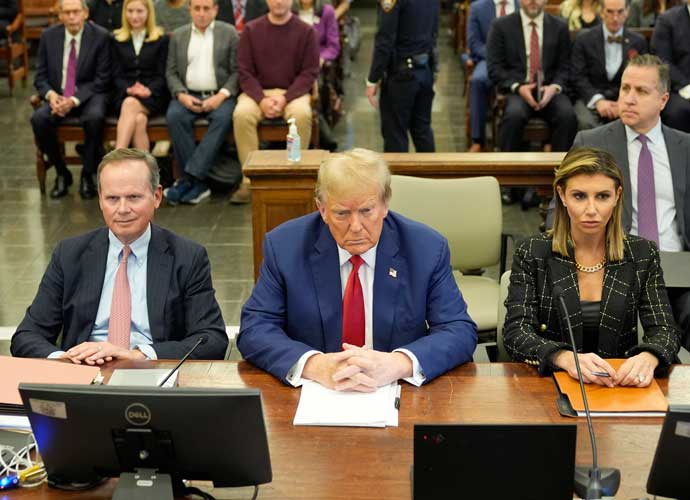Trump Awaits Judgment In Business Fraud Case That Could Cost Him $370 Million – And Trump Tower
After closing arguments in the civil fraud case against Donald Trump and his company last week, the former president faces the real possibility of a $370 million penalty and potential expulsion from the New York real estate industry that solidified his reputation.
Trump attended the courtroom proceedings presided over by State Judge Arthur Engoron, who ruled that Trump could not personally deliver certain remarks due to his refusal to refrain from personal attacks throughout his presentation.
Trump defied the judge and delivered a closing statement anyway until Engoron shut him off.
The start of the courtroom session was delayed due to a bomb threat at Engoron’s residence. Surprisingly, Engoron did not address this in court.
On his way into the courtroom, Trump denied any wrongdoing to reporters and characterized the case as “election interference at the highest level.” He expressed his desire to speak in the closing arguments to highlight what he believes are flaws in the case against him.
Present in the courtroom was New York Attorney General Letitia James (D-New York), whose office initiated the case alleging fraud by Trump and his company through the inflation of asset and property values in financial documents that spanned over a decade. In 2022, after a comprehensive investigation into their business practices, James filed a $250 million lawsuit against Trump, the Trump Organization, and top executives, which included Eric Trump and Donald Trump Jr..
Prior to the trial, Engoron determined that Trump and his executives had repeatedly engaged in fraudulent activities. The question of intent to defraud remains a key issue.
The arguments began shortly after 10 a.m. ET. Trump’s attorney, Chris Kise, spoke first and asserted that none of the witnesses in the 44 days of trial testimony had claimed fraud or identified significant misstatements in Trump’s financial statements. It is expected that the AG’s office will challenge this assertion in its closing statement.
Kise also argued that Trump’s net worth exceeded the figures questioned by the AG’s office and that he had relied on his accountants for the information in the documents. Kise downplayed the importance of the financial statements and stated that they had no impact on the favorable interest rates Trump received from banks, which eagerly extended credit to him. Kise maintained that the banks were well aware of Trump’s reputation and treated him with utmost favorability.
Trump maintains that his properties were worth even more than what was indicated in the contested financial statements. He has also argued that he should not be liable for damages since he never defaulted on any loans or insurance policies.
The AG’s office contends that the Trumps acquired hundreds of millions of dollars through illicit means and should be held accountable for over $370 million. James also seeks a lifetime ban on Trump and two top executives from any future participation in New York’s real estate sector, in addition to a five-year ban on the Trump sons.
Kise highlighted Trump’s industry expertise and urged the judge to consider his success and knowledge. Engoron interjected to clarify that Trump was not qualified as an expert witness in the trial, although Kise maintained that Trump’s achievements should carry weight. Furthermore, Kise attacked the credibility of former Trump attorney and fixer, Michael Cohen, and accused him of being an untrustworthy witness who contradicted himself on the stand in this trial.
The trial, which commenced on October 2, concluded with testimony in mid-December. Engoron expects to issue his ruling by the end of the month.
RELATED ARTICLES
Get the most-revealing celebrity conversations with the uInterview podcast!









Leave a comment